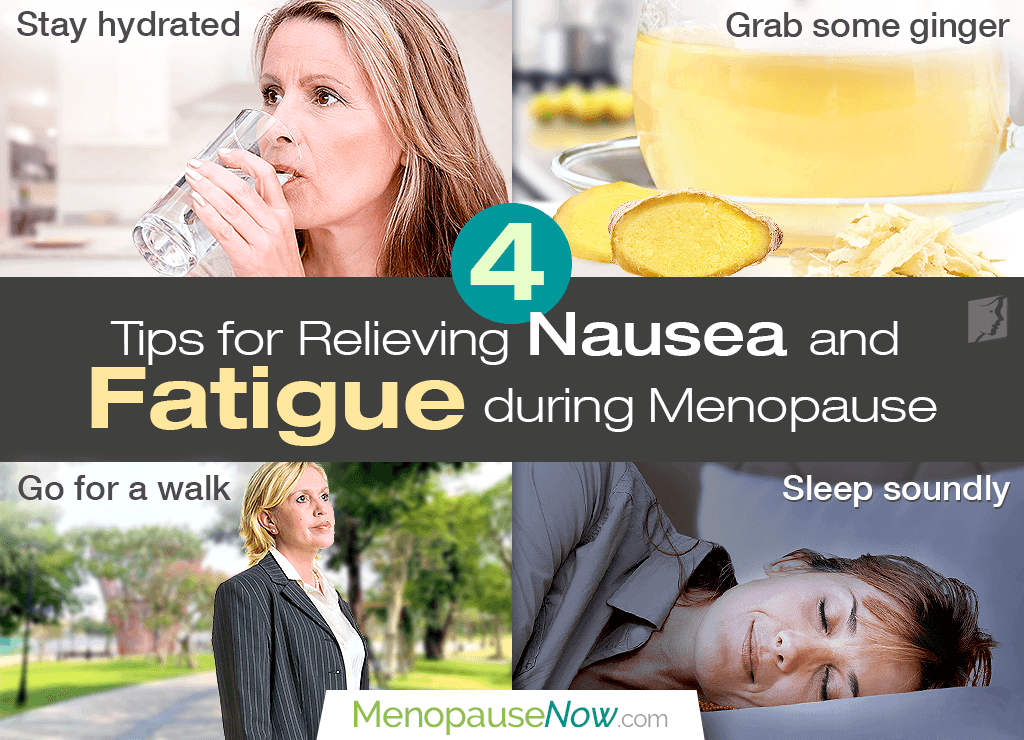Fatigue and nausea are common menopause symptoms, although they are also generic symptoms of many other health issues. While there are medications available, many women prefer to turn to tried and tested natural methods to alleviate both symptoms.
Keep reading to discover four tips for relieving nausea and fatigue during menopause as the quickest, easiest, and cheapest ways to find relief.
Stay Hydrated
For both nausea and fatigue, keeping fluid levels up is essential, especially if nausea also comes with vomiting. Dehydration can lead to or exacerbate fatigue, and even though being nauseated can make women wary of consuming liquids, taking small sips of water can help alleviate the sick feeling. Eating foods high in liquid content can also help, with soup being an excellent option.
Be careful to avoid drinking anything that might make symptoms worse, such as beverages high in caffeine or carbonated drinks. For long-term tiredness and fatigue, cutting out caffeine completely is also recommended.
Grab Some Ginger
Ginger has long been known as a cure for a variety of ailments and is a staple of Asian cuisine. It is particularly effective at treating minor stomach upsets and nausea as well as motion sickness. The stimulating properties of ginger also make it useful for boosting energy levels and, therefore, can further fight fatigue.
One of the best ways to take it is as an infusion, which can be made by adding raw ginger to boiling water and letting it steep for a few minutes.
Go for a Walk
Although it can be difficult to make someone exercise when they are feeling tired and nauseated, a short 15-minute walk outside can be helpful for the relief of both symptoms. Regular exercise can help boost energy levels long-term. Also, menopausal women who engage in regular exercise prevent weight gain, slow bone loss, and boost mood, decreasing the risk of depression.1
While outside in the fresh air, to curb nausea, take deep, slow breaths. Try to avoid staying in hot, stuffy rooms or places with strong smells, as this can also make nausea worse.
Sleep Soundly
Getting enough sleep time is always a priority for any type of malady. Given that about two-thirds of Americans don't meet their sleep needs, this can be a big contributing factor to fatigue.2 Nausea is also often linked to tiredness.
The best methods for ensuring peaceful, restful sleep are to avoid looking at any LCD screens at least an hour before you go to bed; take a hot bath right before; and have a consistent bedtime routine.
These recommendations are for mild symptoms. For more severe cases of fatigue, nausea, or both, the advice of a medical practitioner should be sought. Nevertheless, for middle-aged women, menopause symptoms treatments that focus on treating the underlying cause of hormonal imbalance will bring long-lasting relief.
Sources
- National Health Service UK. (2018). Feeling sick (nausea). Retrieved November 27, 2019, from https://www.nhs.uk/conditions/feeling-sick-nausea/
- National Health Service UK. (2018). Self-help tips to fight tiredness. Retrieved November 27, 2019, from https://www.nhs.uk/live-well/sleep-and-tiredness/self-help-tips-to-fight-fatigue/
- ScienceDirect. (n.d.). Ginger. Retrieved November 27, 2019, from https://www.sciencedirect.com/topics/pharmacology-toxicology-and-pharmaceutical-science/ginger
Footnotes:
- Mayo Clinic. (2019). Fitness tips for menopause: Why fitness counts. Retrieved November 27, 2019, from https://www.mayoclinic.org/healthy-lifestyle/womens-health/in-depth/fitness-tips-for-menopause/art-20044602
- National Sleep Foundation. (2011). Sleepy Connected Americans. Retrieved November 28, 2019, from https://www.sleepfoundation.org/press-release/annual-sleep-america-poll-exploring-connections-communications-technology-use-and



